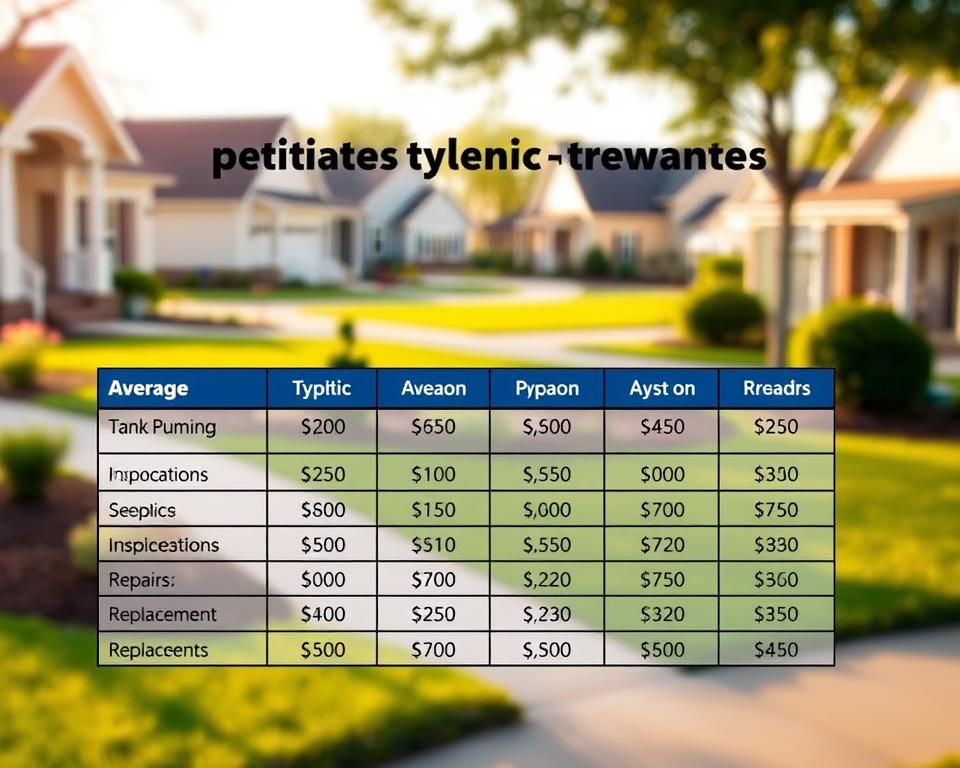
5 Warning Signs Your Acton Home Needs Septic Tank Cleaning Immediately
Septic Tank Pump Swap: The Essential Guide
Ever wondered about the result of a Septic Tank Pump shutdown? For many, it’s a event that leads to major worry and surprise outlays. Noticing the necessity for quick replacement is critical in ensuring a smooth and sanitary Septic system. By committing to routine check-ups, including immediate repair needs, you prolong your system’s life while skipping costly emergencies. Companies like All in Sanitation fulfil a crucial function in ensuring your Septic tank operating smoothly. This guide seeks to give a straightforward explanation of Septic Tank Pump replacement, exploring symptoms and maintenance tips for septic pumping near me.
Crucial Summaries
- Understanding the function of a Septic Tank Pump is essential for homeowners.
- Timely Septic Tank Pump replacement can save you money in the long run.
- Regular care and cleaning are central to increasing the lifespan of your Septic system.
- Skilled support can competently oversee Septic system Pump repair and maintenance.
- Spotting preliminary clues of Pump failure can ward off pricey restoration.
Understanding Your Septic System
A Septic system is vital for homes without access to town sewer networks. It manages household wastewater properly. The Septic tank is key to this system’s performance, serving an important role in the process.
The Septic tank receives sewage, separating solids from lighter matter. This separation is crucial for proper wastewater treatment. The clarified water then travels to the drain field, where it undergoes further purification by the soil, protecting groundwater.
Grasping how your Septic system functions can improve its life and efficiency. Regular upkeep is important for the Septic tank and the system’s overall condition. Homeowners must learn about their system’s specifics to protect the environment and bypass costly repairs.
What is a Septic Tank?
A Septic tank is a underground, impermeable container central to household waste management systems. It’s vital to grasp the Septic tank’s main duty: it processes sewage waste storage by breaking it down. This setup works by sorting solids from liquids, fostering basic wastewater treatment and sanitation.
Its operation hinges on naturally occurring microorganisms that decompose waste. In areas without centralized sewage treatment, Septic tanks are necessary. They hold sewage long enough for solids to sink, forming sludge. Meanwhile, liquid effluent rises to the top, making way for filtration in the drainage field.
Upkeeping a Septic tank in proper order is crucial for its performance and service life. Periodic upkeep is key to stopping troubles like backups and overflows. These issues can result in costly fixes and pose ecological threats. In essence, Septic tanks serve an important function in keeping things clean and safe, especially in rural areas.

Signs You Need a Septic Tank Pump Replacement
Homeowners should be alert of signs that their Septic tank may need a new Pump. A strong sign is experiencing foul odors around drains or in the garden, indicating a system failure. Dealing with repeated or major sewage backups in your home calls for prompt action to avoid worse issues.
Experiencing slow draining drains signals a potential problem. Household fixtures that empty slowly might signal a Pump failure or a clog calling for an expert’s evaluation. Additionally, areas of remarkably lush vegetation in your yard could signal trouble; this shows waste leakage, leading to overflow concerns.
To avoid big and costly fixes, homeowners should handle these signs promptly. Scheduling consistent inspections and maintenance is critical for the Septic system’s peak function.
| Signs | Description |
|---|---|
| Foul Odors | Unpleasant smells around drains or yard signaling system failure. |
| Sewage Backup | Frequent backups in sinks or toilets indicating potential Pump issues. |
| Slow Draining Drains | Fixtures draining slowly can suggest blockages or Pump malfunction. |
| Lush Vegetation | Areas of dense greenery near the tank indicating possible overflow. |
Pump Lifespan and Timing
Grasping the frequency for replacing your Septic Pump is key for a well-functioning Septic system. It’s sensible to have your system assessed every three years. A certified technician during these visits provides details into how well your system runs.
In most cases, pumping out the Septic tank becomes necessary every five years. However, households with extensive use or a larger number of occupants might need service more often. Diligent service of your Septic system wards off pricey work and increases its lifespan. Professionals in Septic services can develop a maintenance plan that fits your needs and the particulars of your system.
Remaining prepared with Septic Pump replacements secures your system’s optimal functioning and protects your home investment. Consistent checks and care sidestep surprise expenses. They support efficient system flow.
Cost of Septic Tank Pump Replacement
The Septic Pump replacement cost differs, dependent on many variables. Homeowners should budget for an amount of $500 to $1,300 for a new Pump. This price bracket accounts for variations in the kind of Pump and material needs. It’s crucial to consider the Pump and Septic tank servicing costs for the fitting and mandatory inspections.
Costs can also escalate due to issues within the Septic system or area labor costs. Needed fixes, triggered by wear or harm, could raise the total outlay. In assessing financial estimates for Septic services, add charges for routine care, reviews, and any emergency calls since these factors greatly help with maintaining your system’s longevity.
Budgeting for routine Septic service reduces the shock of unforeseen costs. Proactive budgeting aids homeowners in managing expenses related to the Pump’s replacement and system upkeep.
Pump Replacement Procedure
The Septic Tank Pump replacement kicks off with a thorough inspection of the system. This first check detects any additional issues aside from the Pump itself. The existing Pump is then extracted carefully and effectively.
Installing the new Pump requires meticulous focus to leak-free joints, making sure no leaks. Expert crews ensure the installation is properly executed, lowering future issues.
The closing stage is a complete post-installation check. It checks effective operation, granting homeowners peace of mind. With qualified aid, the process is simple, creating minimal hassle.
Septic Tank Pump Installation Best Practices
When handling Septic Pump installation, it’s critical to observe best practices. Engaging skilled professionals guarantees compliance with local regulations. They expertly manage the installation complexities, sidestepping errors common in inexperienced setups.
Adhering to precise Septic service standards is key for smooth system flow. Choosing suitable parts and durable materials prolongs the Pump’s life and optimizes the Septic system’s efficiency. This detailed care elevates maintenance and overall performance longevity.
- Choose a trusted service provider who is skilled in Septic systems.
- Ensure that all necessary permits and inspections are in place before work begins.
- Opt for Pumps that fit the specific requirements of your Septic system.
- Include a pre-installation inspection to assess site conditions.
- Pay attention to the layout and flow of the Septic system during installation.
Following these guidelines creates a trouble-free install. It also secures a robust system for sound wastewater control.
Maintenance Advice
Stopping high bills with your Septic system begins with consistent service. By using easy guidelines, homeowners can preserve their Septic systems’ efficiency. Arranging periodic reviews is a good idea. It spots and address problems before they become severe.
It’s also important to avoid flushing undesirable things down the drain. Grease, chemicals, and items that don’t break down can harm your system. Lowering water use during high-usage times can also improve system handling.
Booking professional cleanings with entities like All in Sanitation is important for Septic health. Learning what you must and must not do with your Septic tank can dramatically increase its lifespan and secure your household environment.
Cleaning Your Septic Tank
Consistent Septic tank cleaning is crucial for your system’s ongoing function and efficiency. The process entails removing sludge, inspecting for damage, and making sure everything works well. These steps are necessary to ensure continuous performance and stop pricey problems.
A comprehensive Septic maintenance plan should feature periodic assessments and cleanings that match your specific needs. Homeowners must realize the importance of prompt care to sidestep difficulties like backups. Bringing in pros ensures the cleaning is detailed, promoting a hygienic home.
| Service Type | Frequency | Benefits |
|---|---|---|
| Pumping | Every 3-5 years | Stops system failure and backups |
| Inspection | Annually | Detects potential issues early |
| Maintenance | As needed | Increases the lifespan of the system |
Spending on periodic Septic tank cleaning lowers spending and lengthens your system’s life. It supports uninterrupted waste treatment. Acting now guarantees your Septic system’s efficiency for the future.
Choosing a Replacement Service
Locating a reliable Septic service provider is vital when replacing a Septic Tank Pump. Initially, ensuring their certifications and licenses. Such credentials validate the company’s compliance with industry norms, necessary for a trouble-free replacement process.
Examining customer reviews is also a critical step. Past feedback indicates service quality, aiding in the filtering process. Go with companies with a strong track record of excellent workmanship and customer support.
Consider recommendations from your friends and neighbors too. Insights from friends and neighbors can point to top-notch Septic services in your vicinity. Always request detailed examples of their positive experiences with these services.
Finally, assess the work scope and cost from various firms. A comprehensive analysis guarantees exceptional service and optimizes the value of your expenditure. Observing these guidelines assures your Septic system receives the best care it requires.
DIY vs. Professional Service
Homeowners often debate whether to manage Septic issues by themselves or seek professional help. DIY Septic maintenance appears attractive for simple fixes and upkeep. For example, keeping an eye on levels or snaking lines can be done solo.
On the other hand, recognizing when to hire Septic professionals is important for significant failures. Complex fixes, replacing systems, or major clogs call for specific equipment and skills. Without the right skills, attempts to repair these problems can result in contamination and large-scale damage.
Deciding between DIY and professional help demands considering the job’s complexity. Presented below are examples showing when DIY is suitable and when professional Septic services are advised:
| Situation | DIY Feasibility | Need for Professional Help |
|---|---|---|
| Routine maintenance (e.g., tank level checks) | Yes | No |
| Minor clogs in drain fields | Yes | No |
| Major Septic Tank Pump failure | No | Yes |
| Complex sewage backflow issues | No | Yes |
| Regular system inspections | Maybe DIY | Yes for thorough checks |
Making informed decisions on these matters secures safety and efficiency. Picking the right option protects as well as the Septic system but also heads off surprise expenses.
The Bottom Line
Grasping the workings of your Septic system is important for its efficient oversight and your home’s performance. Recognizing first symptoms of issues helps avoid pricey repairs and ensures the system’s condition. This anticipatory approach benefits the environment and enhances your property value.
To maintain your Septic system in optimal condition, make sure of maintenance. This involves consistent assessments and timely professional Pumping. This minimal cost keeps your home’s safety and your family’s health. Your Septic system operates smoothly with adequate service.
Our team at All in Sanitation is focused on delivering top-notch Septic care. We supply the experience essential to maintain your system performing at its best, protecting your home investment over time. With our focus on quality service and reliability, we’re eager to serve your Septic maintenance needs.